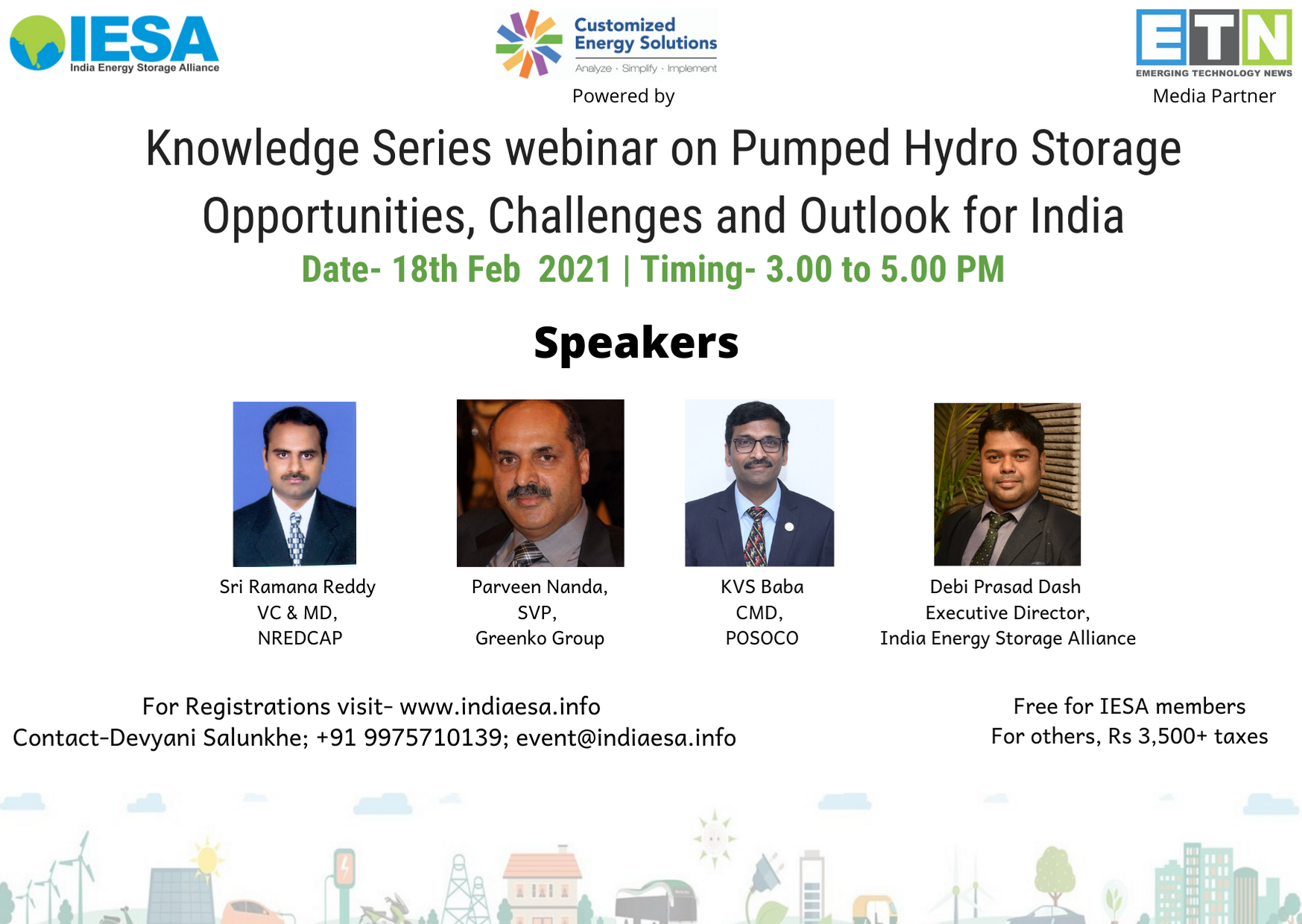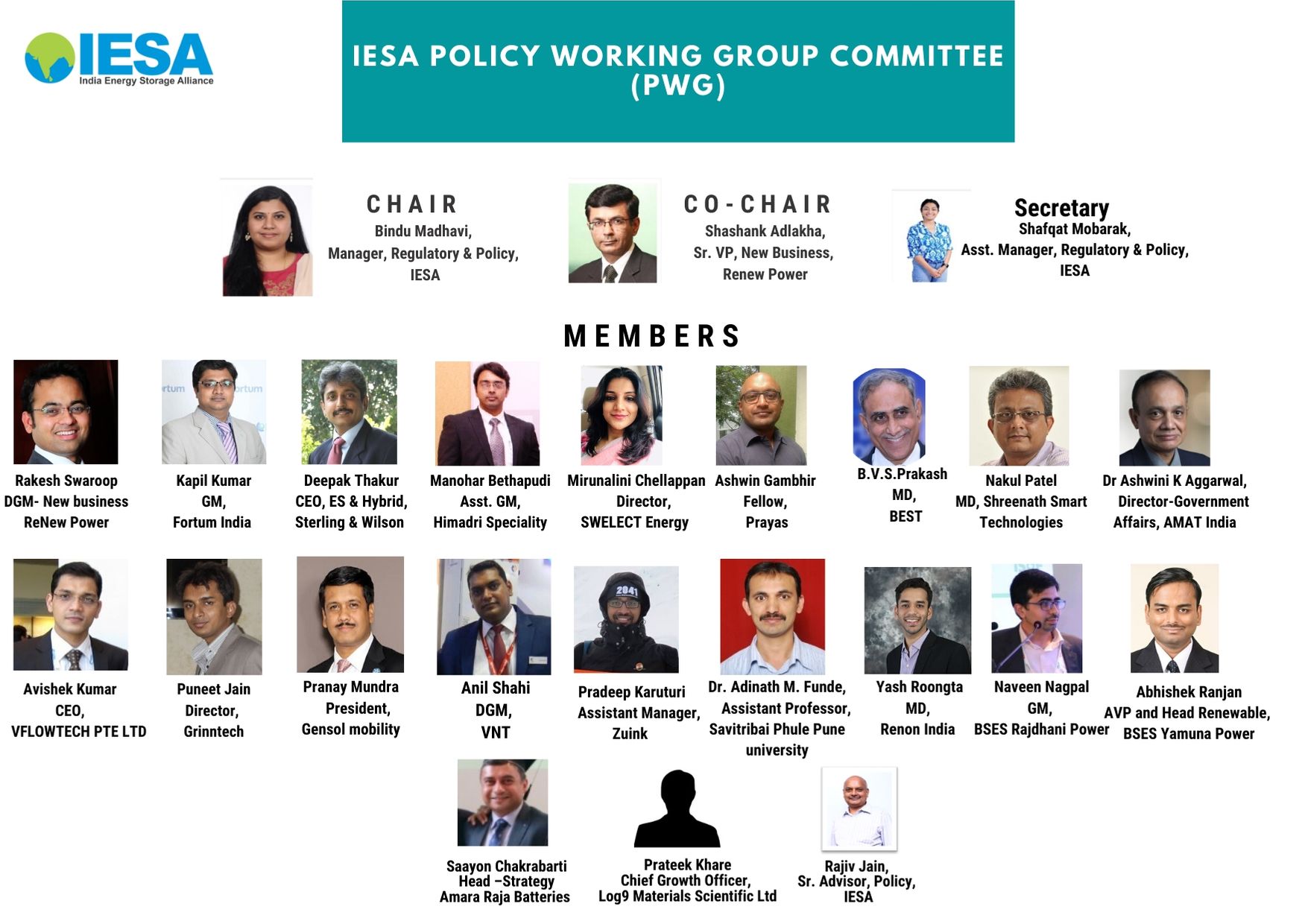
Discussion Points: Members’ attendance: Quick introduction/updates (10 mins) Discussion on IESA’s MOVE Initiative: EV Adopters Circle (EVAC), Ms. Netra Walawalkar, Director- India Markets, CES (15 mins) Update on Launch of Startup India Seed Fund Scheme, Shivam Kashyap (10 mins) IESA S... Read more

Discussion Points: Cabinet Approval for Production Linked Incentive scheme “National Programme on Advanced Chemistry Cell (ACC) Battery Storage”. Energy Storage Insurance Solutions and Risk Mitigations by Mr. Daniel Nicholls, Miller, Lloyd’s of London Energy Storage Broker. Challenges in ... Read more

Discussion Points: IESA inputs/ suggestions on draft National Electricity Policy’ 2021. Cabinet Approval for PLI Scheme “National Programme on Advanced Chemistry Cell Battery Storage”. Letter to PMO - Gratitude for release of PLI Scheme on behalf of IESA and its members. IESA recommend... Read more

Discussion Points: Members’ Introduction/Attendance. Discussion on extending FAME II Incentive towards battery swapping and range parameters, Akshay Kumar, Asst Manager, E-Mobility, IESA. Case Studies on Solutions for Energy Management & New Energy Services, Gokul Shrinivas, Founder, Mini... Read more

This webinar analyzed and discussed the key issues, challenges, opportunities, and outlook for India's pumped hydro storage segment. Global experts shared the key learning and international case studies in the webinar. Read more

This webinar analyzed and discussed the key issues, challenges, opportunities, and outlook for India's pumped hydro storage segment. Read more

Agenda1. An introduction to Convergence Energy Services Limited.2. Explore technical partnerships for decentralised technologies atscale. Read more

Discussion points: 1. 2021 Vision and Goal Setting.2. Letter to Ministry of Finance on Budget 2021 Recommendations.3. MoP: Waiver of Inter-State Transmission charges and losses on transmission of electricity generated from solar and wind sources of energy.4. Electricity (Rights of Consumers) Rules, ... Read more

Discussion points: 1. 2021 Vision and Goal Setting.2. Letter to Ministry of Finance on Budget 2021 Recommendations.3. MoP: Waiver of Inter-State Transmission charges and losses on transmission of electricity generated from solar and wind sources of energy.4. Electricity (Rights of Consumers) Rules, ... Read more



